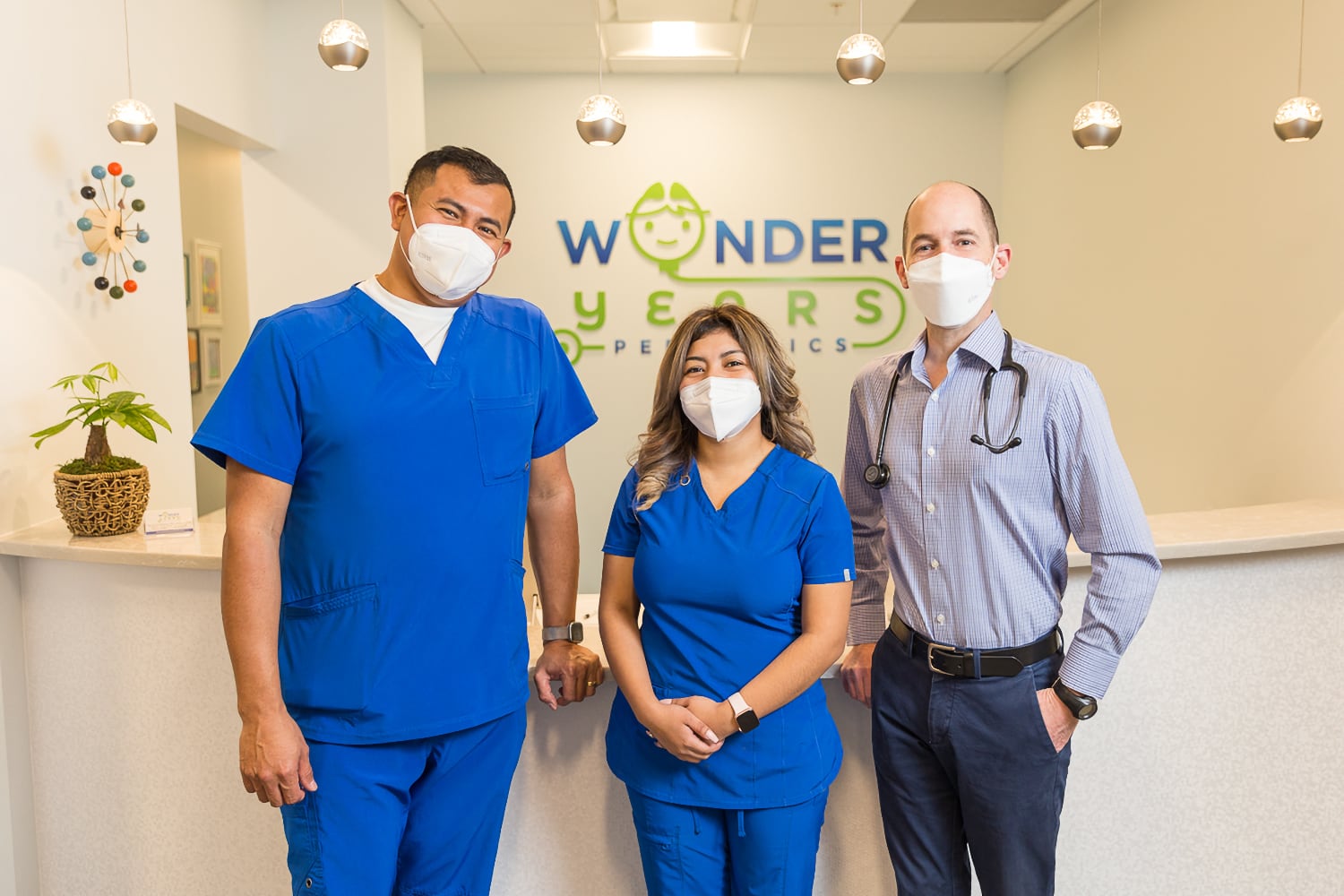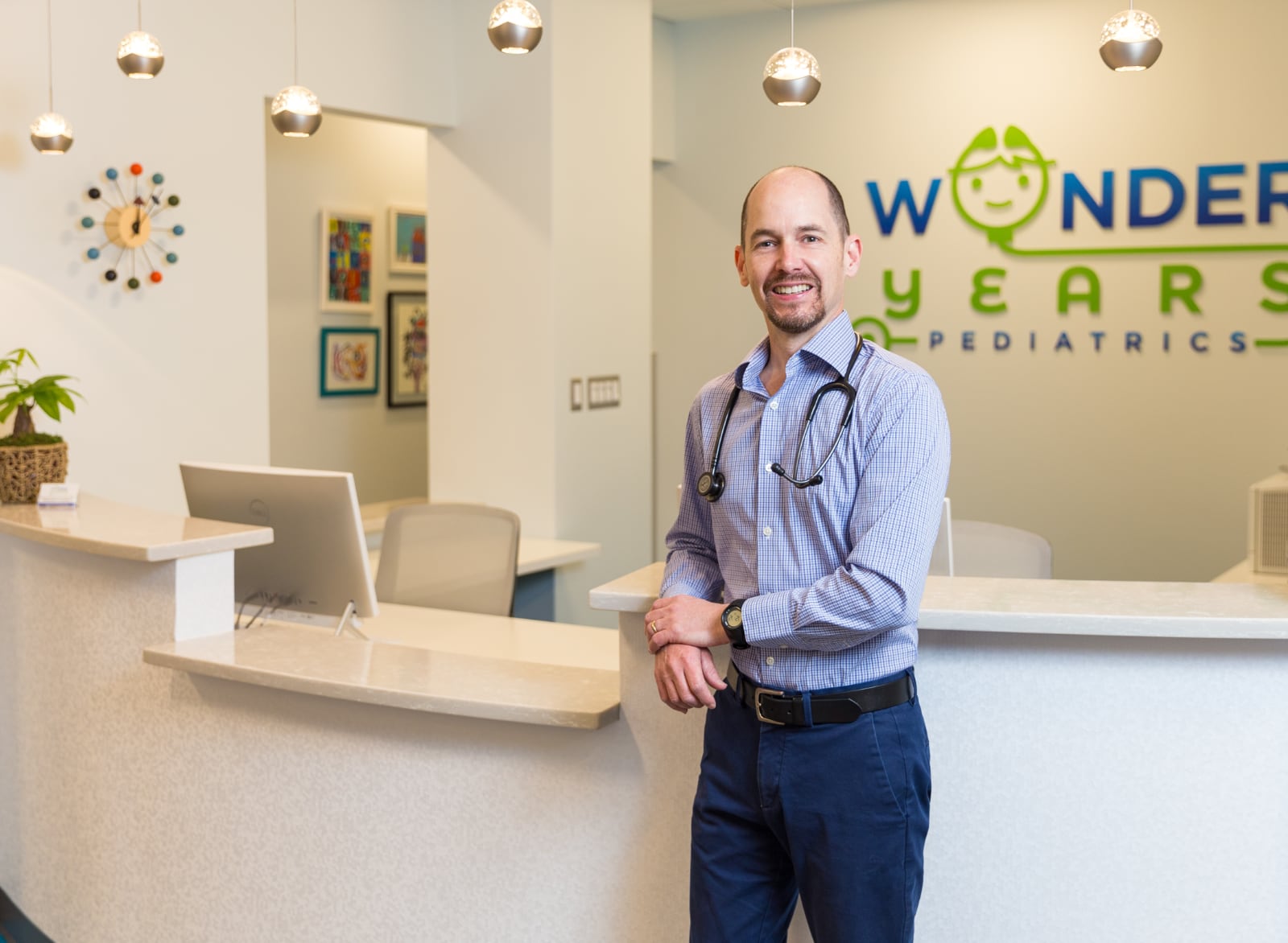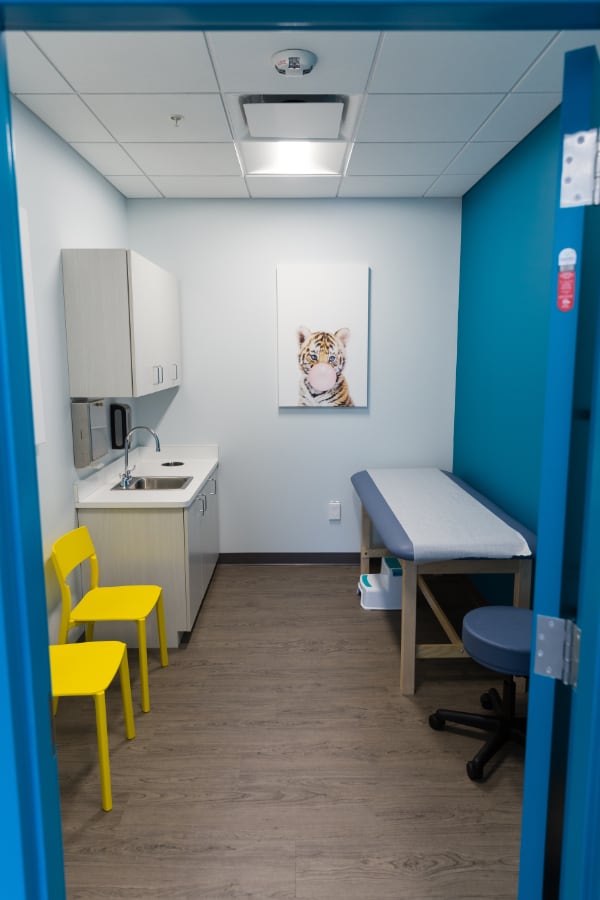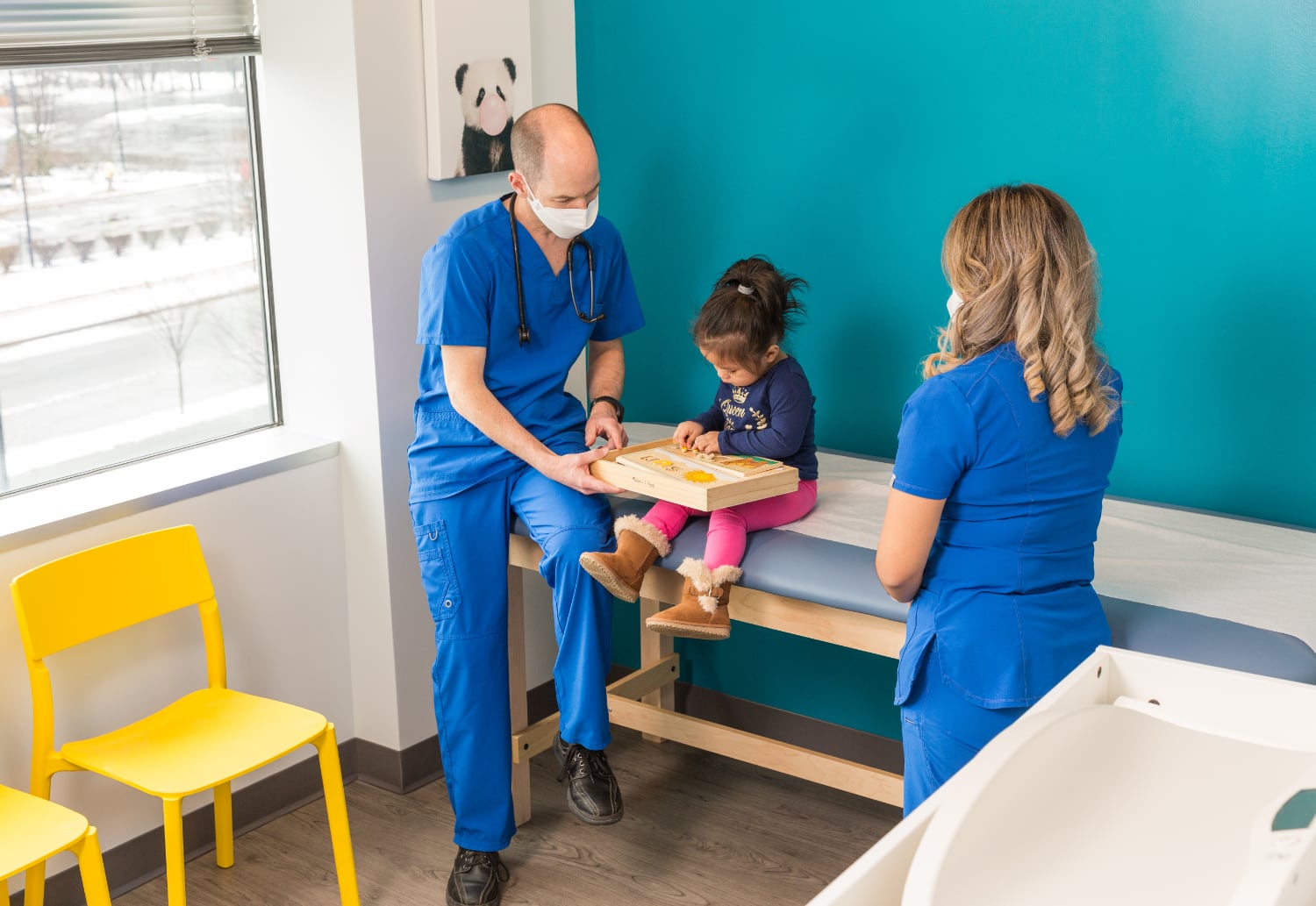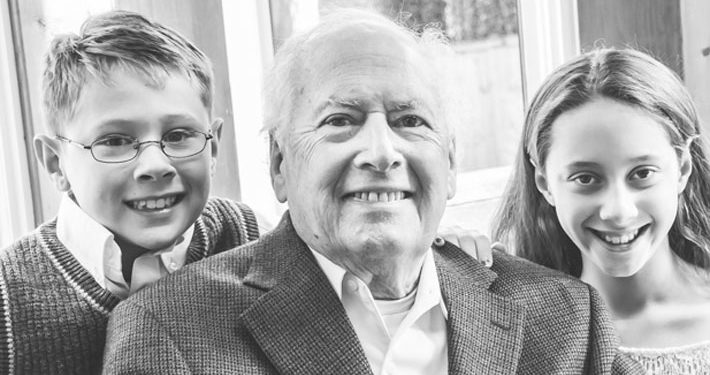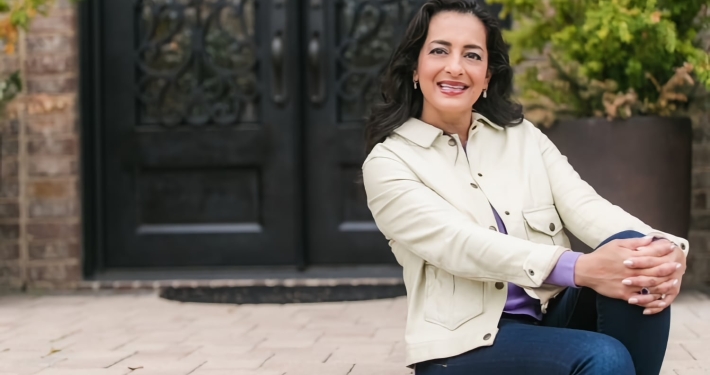Lessons from the Pandemic: Opening the Doors During COVID-19
Dr. Scott Wissman discusses the challenges, triumphs, and poignant lessons of opening a practice during a global pandemic.
Motivated to serve his community with his unique expertise, Dr. Scott Wissman took the leap to open an independent practice. When he set his opening date in the spring of 2020, Dr. Wissman could never have predicted the arrival of the COVID-19 pandemic. Dr. Wissman discusses the challenges, triumphs, and poignant lessons of opening a practice during a global pandemic.
Opening Date: March, 2020
In the fall of 2019, Dr. Scott Wissman made the significant decision to open his own independent pediatric practice. This dream had been percolating for years, and with the support of trusted advisors and mentors, and his family, he decided it was time to take the plunge. “I began to put my office together in the fall of 2019,” Dr. Wissman explains, “So I targeted March or April 2020 as when I’d like to open my practice, Wonder Years Pediatrics.”
Why the name Wonder Years? “I thought long and hard about names for the practice; the Wonder Years really are those years from birth to young adulthood,” explains Dr. Wissman. “It encompassed every phase of childhood. From a parent’s perspective, every year is a Wonder Year.” He continues, “Your baby is developing right before your eyes and every day reveals a new discovery. The wonder in the faces of new parents is so infectious—you can’t help but look at everything around you in wonder! Your child grows and becomes more independent until they literally are ready to leave home. As a father myself, that wonder never leaves me.”
With deep intrinsic motivation and a love for supporting children and families, Dr. Wissman was poised to open his independent practice in the spring of 2020. Unbeknownst to him, of course, this opening date perfectly aligned with the beginning of the COVID-19 pandemic in the U.S. In the following months, Dr. Wissman received a crash-course on the pitfalls and the unexpected triumphs of opening an independent practice during a global pandemic.
Why Go Independent?
Wissman attended The George Washington University in Washington, D.C. for medical school and then Baylor College of Medicine in Houston for residency. Then, in his first job after residency, he joined a practice where he worked with a predominantly Latinx population. “Working with Spanish speaking families was always a passion of mine and I was able to do that in the practice where I was working,” says Dr. Wissman. It ended up that most of my days I was working with Spanish-speaking families and loving it!”
Dr. Wissman had always had an interest in Spanish language; in his undergraduate years, he was a Spanish and pre-med double major. During this time he studied abroad in Europe and met his wife, who hails from Spain. This relationship is an important element in Dr. Wissman’s love of Spanish, which he speaks fluently.
A few factors, both push and pull, led to Dr. Wissman’s decision to open an independent practice. First, he felt pulled by a strong sense of purpose and intention in his work with families. “There is wonder in being an independent pediatrician that enables you to get up close and really get to know families,” Dr. Wissman explains. “You get to be a part of the continuity in families—again, from that very first newborn visit to all the ups and downs of life’s joys and challenges, and then eventually you might even get to see those same patients bringing their own newborns back to you, where you can experience that cycle of the wonder years all over again!” Relationships are at the heart of Wissman’s practice, and building and maintaining them spurred him to open his own practice.
“I believe that everyone that opens an independent practice does so for very different and personal reasons,’ says Dr. Wissman. “There are many challenges in doing so but the rewards are immense. I wanted to open my own practice as a way to fully express my ideals of what I thought a pediatric practice should be like and feel like. I wanted to provide personalized care that put patients at ease and helped alleviate worries that parents and care-givers often have, and I wanted to do it on my own terms. I wanted to practice medicine and give ‘concierge attention’ to children and their families regardless of the type of insurance they had. From Medicaid to private insurance to self pay, I wanted to provide the same great care to everyone and have the freedom to make changes and adjustments to the practice and to meet the needs of families as I saw fit.”
“I wanted to open my own practice as a way to fully express my ideals of what I thought a pediatric practice should be like and feel like. I wanted to provide personalized care that put patients at ease and helped alleviate worries that parents and care-givers often have, and I wanted to do it on my own terms. I wanted to practice medicine and give ‘concierge attention’ to children and their families regardless of the type of insurance they had.”Dr. Scott Wissman
Dr. Wissman continues, “As an independent practice, I was not confined to see just one type of patient or restricted to take only private insurance. I also have more flexibility to plan services and find resources that help make an impact on the community, and meet the needs of my patient population on a larger scale—and I don’t have to ask for anyone’s permission.”
Within the scope of his private practice, Dr. Wissman is also dedicated to best serving underprivileged communities, particularly Latinx communities. “Our population is almost 80% Spanish-speaking. There’s the language part of my job that’s essential, but also cultural competency,” he explains. “In our population we’re also looking at Latinx roots, things like home remedies. When we say Latinx that’s a huge diaspora of folks—a Peruvian, Puerto Rican, or El Salvadorian family will have hugely different relationships with the medical world and culture around health. There are cultures embedded with a rightful distrust of the U.S. medical system. We simply can’t think of everyone in one big group.”
Dr. Wissman also experienced some push factors in the form of burnout and lack of independence. “Before Covid, I was in a place in my career where I was seeing 30 or more patients a day, and it felt like a grind. I didn’t have enough time with each patient, and was getting tired. I sometimes felt I was missing some kind of challenge or spark in my work.”
He continues, “It was during that time that I realized if I was going to open an independent practice, this would be the moment.” Dr. Wissman isn’t an outlier in reporting the phenomenon of “the grind.” Burnout is defined as chronic stress leading to emotional exhaustion, cynicism, feelings of ineffectiveness and lack of accomplishment, or detachment from patients, work, and family, according to the AAP. In 2019, 41% of pediatricians reported feeling burned out, with these numbers coming in even higher for female physicians.1
For Dr. Wissman, pursuing independent practice offered an inroad to managing burnout on his own terms. “I kept finding myself thinking: ‘If I had my own practice, I would do x, y or z,’” Dr. Wissman explains. So he capitalized on this motivation and began to lay the groundwork for opening his independent practice. But Wissman quickly realized that opening his own practice would be, in his words, a “leap of faith, because I didn’t have any sort of business background.”
“It was this moment where I’d said, okay I’m starting my own practice, I’m taking this leap—so now what do I do?”
“It was helpful to understand that as a physician I didn’t need to do everything on my own. Asking for guidance and seeking out experts is a healthy and essential part of this process.”Dr. Scott Wissman
Taking the Leap
As he began to lay the groundwork for his independent practice, Dr. Wissman noticed he was fighting some internal and external preconceptions about opening a business. An initial barrier was the assumption that physicians without business backgrounds will struggle in independent practice.
“After residency I’d received the conventional wisdom that I should work for someone else to see how a practice should be run,” Dr. Wissman says. “But learning on the job, you don’t necessarily see the business side of the operation. I loved where I was working and got great experience with patients, but it was never a necessity for me to learn business management.”
Dr. Wissman started the process by seeking consultation from PCC, the Verden Group, and the Practice Management Institute (PMI). “I basically cold-called some folks one morning, and by the afternoon I had this incredible support system,” Dr. Wissman explains. “I’d felt some trepidation about opening my own business, but these organizations helped me feel comfortable that I was making the right decision.”
Working with outside consultants allowed Dr. Wissman to share the load of the huge undertaking of opening his own practice. “It was helpful to understand that as a physician I didn’t need to do everything on my own,” he says. “Asking for guidance and seeking out experts is a healthy and essential part of this process.”
Dr. Wissman also concedes that opening an independent practice isn’t for everyone. It was a huge undertaking for him, and a decision that he didn’t take lightly. “I learned that there is no right decision around opening an independent practice; everyone has their unique reasons for doing so,” says Dr. Wissman. “For me it was the right decision because I had the right motivation.”
Lessons From COVID-19
While at first it was stressful and disorienting to open a new business in March 2020, Dr. Wissman points to some unexpected gifts that came from the experience. “COVID-19 actually allowed me to take a step back, and realize that I’m not going to be rushing this,” he says.
Dr. Wissman continues, “Initially I had thought that I was ready to go and wanted to get started as quickly as possible. When Covid happened, I got to learn how other pediatricians were responding to it without having already hung up my shingle.” Because his practice delayed opening once they learned of the pandemic, Dr. Wissman was able to observe the responses of other practices and decide how best to proceed with his own COVID-19 policies and procedures.
An added benefit of this process was becoming immersed in a strong network of pediatricians.
“I found myself gravitating towards this world of other practitioners to learn from them, and actually found my group of like-minded pediatricians, which was something I had been seeking in my career for years,” Dr. Wissman says. “I worked with other pediatricians to understand how they were handling Covid, and as I learned I could continue to make plans behind the scenes.”
Offices have faced many logistical hurdles in meeting the COVID-19 crisis. Because he observed colleagues jumping these hurdles in real time, Dr. Wissman was able to build out his new space based on their learned wisdom. “With setting up the office itself, spacing in rooms, the number of sinks for handwashing, a totally new design for the waiting room… I was able to implement these changes before even setting up an initial office,” says Dr. Wissman. “It also allowed me to make provisions for what I’d need to be managing down the line with things like PPE as well.”
During the era of COVID-19, more and more patients are seeking medical support through telemedicine. According to the CDC, during the first quarter of 2020 the number of telehealth visits increased by 50% nationally, when compared with the same period in 2019. While telehealth brings with it many benefits to the public and practitioners, including expanded access to care, reduction of disease exposure for staff and patients, and preservation of scarce supplies of PPE2, for a new practice seeking to build relationships with families the shift to telemedicine presented yet another challenge.
“Initially I had thought that I was ready to go and wanted to get started as quickly as possible. When Covid happened, I got to learn how other pediatricians were responding to it without having already hung up my shingle.”Dr. Scott Wissman
“There was some stress that we were opening up during a time when few people are physically coming in to see the doctor,” explains Dr. Wissman. “However, we were able to market ourselves as a brand new practice with brand new facilities—that these rooms have never been used before and were constructed with Covid best practices in mind.”
Like providers across the country, Wonder Years Pediatrics has faced a shortage of personal protective equipment (PPE). An October 2020 NCBI report asserts that the U.S. government has anticipated PPE shortages since at least 2006, and yet did little to rectify this shortage. The consequences of the PPE shortage are widely known, with the safety of millions of healthcare workers endangered worldwide.
For Wonder Years pediatrics, the threat of insufficient PPE has led to concerns about the practice’s ability to serve all their patients. “One frustration has definitely been the lack of PPE,” says Dr. Wissman. “If we don’t have enough PPE, we can’t staff the office appropriately. We did pretty well at the beginning when the practice first opened but as we got busier, we began running low and supplies were limited. Here was a feeling of impending doom that made us want to go ahead and stock up,” Dr. Wissman says. “This pandemic has simply highlighted deep cracks that already exist in the U.S. healthcare system.”
Cracks Exposed by the Pandemic
Dr. Wissman sees the weaknesses of this system play out in the racial inequity in his patient community. “In serving Latinx communities, many of our parents are front line workers,” he says. “We have to acknowledge that these parents don’t have the luxury of staying home. They’re doing their best to stay safe, but are also the ones getting infected first. When we prioritize maintaining a certain level of economic stability over public health, then over-privileged people benefit and underprivileged people get hurt.”
Dr. Wissman also points to the spread of disinformation as it relates to public health. He believes that, now more than ever, families need trusted pediatricians they can return to over the course of their child’s development. “Covid has exposed that there’s a huge need for pediatricians in this country—a larger number of pediatricians to serve people in the physical clinic, but also a real need for pediatricians to help families navigate a changing world,” he says. “There’s a real need for families to be able to go to a trusted medical source. If they have a relationship with you, they’re less likely to get sucked in by misinformation online.”
He continues, “There’s so much information out there on the internet—good information, and also a disturbing mistrust of science and the medical community. There’s a need for the pediatrician to be someone you can rely on and go to for answers. Rather than going to urgent care, families want a medical home with personal relationships, where we can really discuss what’s going on. With the medical home kids can learn to trust science at a young age.”
“It’s of fundamental importance that even with Covid, children are still coming in to the pediatrician, getting their well child checks, and that we’re doing everything we can to keep them on track with their healthcare. We want to make sure kids are meeting all of their milestones and keeping up-to-date on their vaccinations. We want to support this generation, experiencing unprecedented global changes, in staying physically and mentally well.”Dr. Scott Wissman
This type of mistrust is shockingly present in the wave of vaccine hesitancy sweeping the U.S. with about 27% of the American public saying they probably or definitely would not get the COVID-19 vaccine. This number is higher among front line workers and African Americans, who are understandably wary of the U.S. healthcare system based on centuries of racialized mistreatment. “At the time of this article, COVIDvaccines haven’t yet gone through clinical trials for children under sixteen,” says Dr. Wissman. “As both a father and a pediatrician, my patients have confidence in my assessment of developments with the vaccine for children, and that I would only give their kids a vaccine that is safe and effective.”
Lastly, Dr. Wissman urges that, “It’s of fundamental importance that even with Covid, children are still coming in to the pediatrician, getting their well child checks, and that we’re doing everything we can to keep them on track with their healthcare. We want to make sure kids are meeting all of their milestones and keeping up-to-date with their vaccinations. We want to support this generation, experiencing unprecedented global changes, in staying physically and mentally well.” Despite the challenges of our world right now, Dr. Wissman is finding joy in each day at Wonder Years Pediatrics. For Dr. Wissman, moving through and healing from the pandemic means nurturing relationships with existing patients.
“I used to think that if I was in independent practice I’d be totally alone, and now I feel more in community than ever. I have this support network to help us with whatever challenges we face going forward. It’s comforting and very empowering.” Dr. Wissman continues, “The day we finally opened and I saw familiar faces, I was teary-eyed. This community is what we created together: my wife, myself, my family, and everyone who has had a hand in it.”
Emily Graf is a freelance writer, wilderness educator, and English teacher living in Colorado. She is passionate about telling stories that promote equal access to quality health care. She can be contacted at emgraf11@gmail.com for inquiries.


